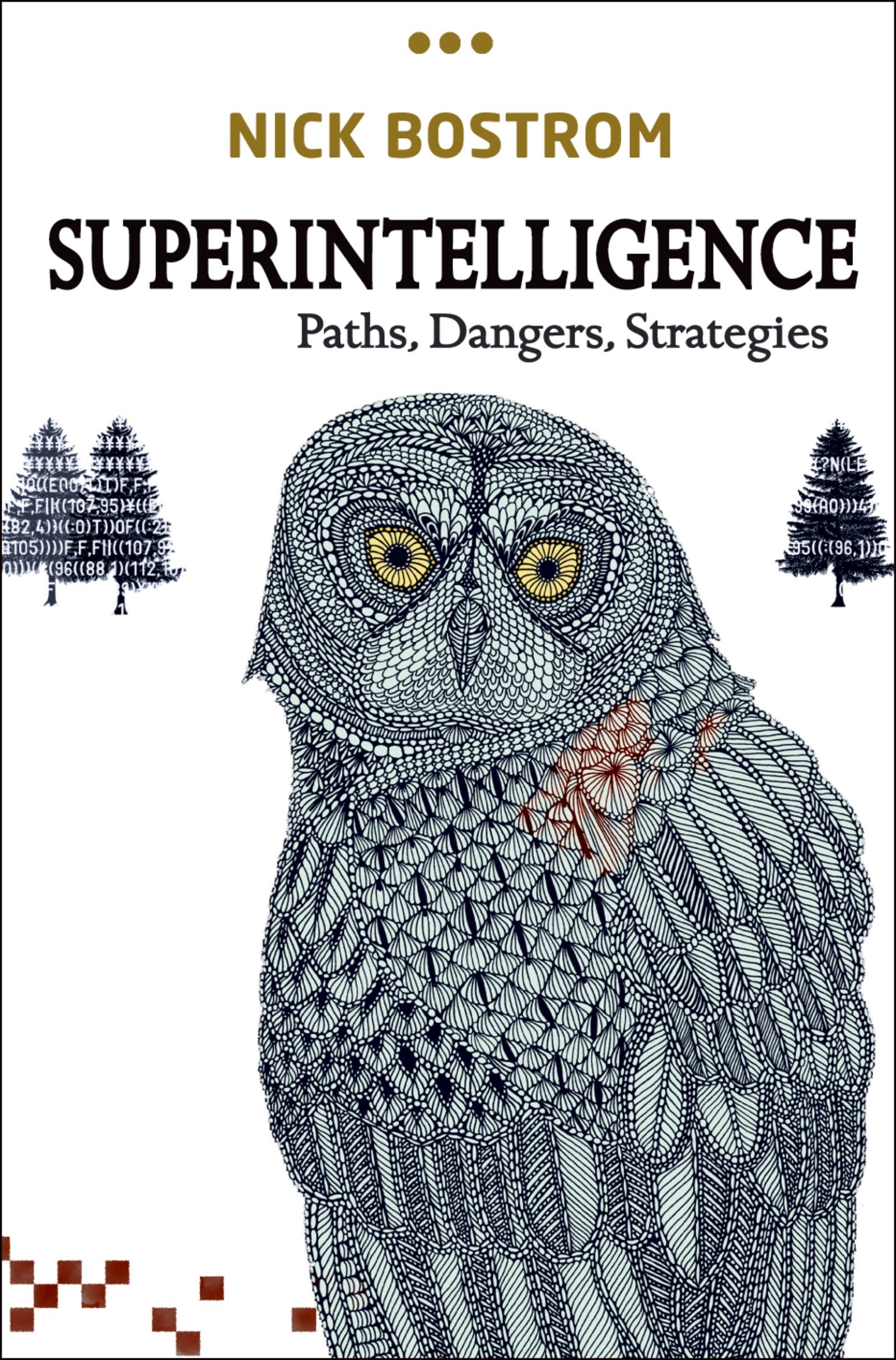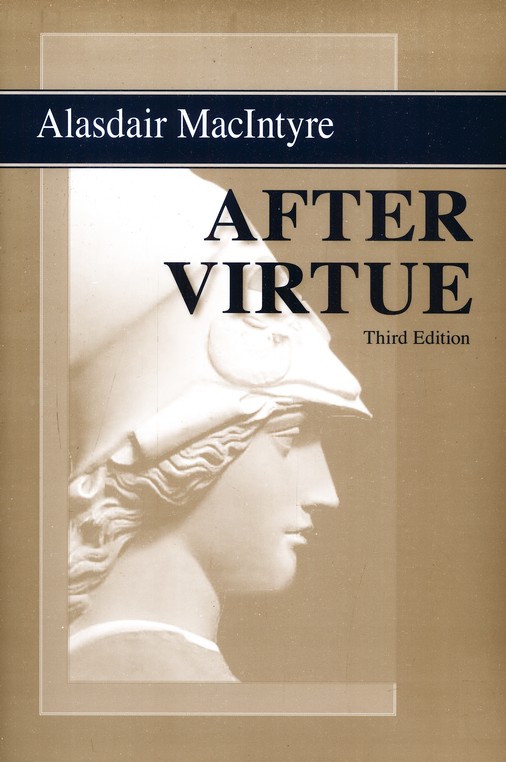The Tree of Knowledge...

To accept as a theme for discussion a category that one believes to be false always entails the risk, simply by the attention that is paid to it, of entertaining some illusion about its reality.
~Claude Lévi-Strauss
Systematic error

Welcome to this introductory course on philosophical ethics. Although I'm very excited about teaching this material, I'd like to begin with an admission: this is a very difficult class to teach. This is because philosophical ethics has, despite its two millennia history, failed to produce a dominant theory. To be honest, this is to put the point charitably. Nick Bostrom makes the point a little more forcefully. Since there is no ethical theory (or meta-ethical position) that holds a majority position (Bourget and Chalmers 2013), that means that most philosophers subscribe to an ethical theory that is false (Bostrom 2017: 257). Put differently, imagine that a theory that we will eventually cover, say, utilitarianism, turns out to be true. Per the survey by Bourget and Chalmers, only about a third of ethicists subscribe to this view. That means that, at least in our little hypothetical scenario, two-thirds of ethicists are wrong (since they don't subscribe to utilitarianism). The same could be said of any ethical theory, since about a third is the most any ethical theory gets. In other words, the field of philosophical ethics is characterized by systematic error. How is one expected to teach an introductory course to a field where most theorists are wrong?
What I've decided to do in this course is to frame the entire course within the context of systematic error. My assumption is that, if systematic error is the state that the field is in, then a proper introduction to the field should leave you in utter moral disarray. What I'd like to do in this first lesson is give you a theory as to why the field of ethics is in a state of utter chaos—a theory I'll give in the next section. I'd also like to make three important points today in the hopes that, at the conclusion of the course, you might be able to understand how these points are manifested in the way that I've taught this class. Here are the three points:
- The field of philosophical ethics is characterized by systematic error.
- The field of philosophical ethics has many famous theorists who themselves proposed morally abhorrent positions.
- The field of philosophical ethics cannot credibly make the case that ethical reflection has improved the world.
Let's cover the first point in this section. First off, there is no dominant view in ethics. As mentioned before, per the survey Bourget and Chalmers, about a third of ethicists are consequentialists (some sort of utilitarianism). Another third lean towards deontology, which we will cover in its Kantian form—coming from the mind of Immanuel Kant. Lastly, the virtue tradition (which was popularized by Aristotle) comes at a distant third, with less than a fifth of ethicists subscribing to the view. Other views are influential in other subfields. For example, newer versions of social contract theory seem to dominate in political philosophy (Mills 2017). But at least in the subfield of ethics, there is no majority view. You have, at best, a tie for a plurality. That looks like a whole field of inquiry that has failed to achieve consensus

Francis Crick (1916-2004).
Second, the failure of philosophers to arrive at a dominant view in ethics is glaringly obvious to other disciplines. In her recent book Conscience, Patricia Churchland gives an anecdote about how she and the famous molecular biologist Francis Crick attended an ethics lecture, and Crick was dismayed that the focus was on pure reason, attempting to arrive at moral truth through reason alone. Clearly, Crick argued, our genetics play a role in our sociality, including our moral behavior; and philosophers need to discuss that. Churchland reports that Crick essentially made an argument in the style of a theorist that we will eventually cover: David Hume. Crick's point was very Humean indeed—reason cannot motivate action; morality is about action; thus, reason cannot drive moral behavior.
Crick's disbelief brings me to the third point. Even worse than the recognition by biologists, among others, that ethicists have failed at their job is the fact that ethicists are fighting back when others try to do what they couldn't do. Although there has been a push for more empirical approaches in ethics, i.e., more incorporating of findings from the sciences into our ethical theories, there has been strong and consistent push-back from non-empirical philosophers. In fact, some philosophers would be horrified to see that I teach this course the way that I do—devoting all of Unit III to an empirical assessment of some popular ethical theories. But my reasoning is simple. I wanted to show ethics as it really is: with all ethical theories running into problems.1
Lastly, even empirical approaches to understanding our moral behavior have not panned out. One camp of theorists that uses the natural sciences to fuel their arguments—a group we will refer to as moral skeptics—agree that moral objectivism is wrong, i.e., that there is no such thing as objective moral values, but they don't know where to go from there (see Garner and Joyce 2019). Their general options appear to be: conservationism (keeping moral language and moral reasoning intact), moral fictionalism (pretending morality is real but acknowledging that it is a fiction), and abolitionism (discontinuing the use of moral reasoning and moral language). The most prominent skeptic, Richard Joyce, chooses moral fictionalism, but his own intellectual descendants disagree with him. This is pervasive disagreement—a likely indicator of systematic error.2
Food for Thought...


Moral disarray

Before moving on to the second and third points that I want to make about philosophical ethics, it might be good for us to consider why it is so difficult to define the word good, at least in its moral sense. To this end, I will enlist the aid of Alisdair MacIntyre, whose After Virtue and A Short History of Ethics were instrumental in building this course. Here's his point in a nutshell. MacIntyre argues that moral discourse is in disarray and that the only discipline (history) that is poised to discover this fact, as well as its cause, was not codified as an academic discipline until after (or during) the period in which normative language was disrupted inexorably. Clearly, there's a lot to unpack here.
What MacIntyre is getting at is that we have lost track of the very meaning of moral and then we forgot we lost track of it. Per his research, MacIntyre has discovered that there has been distinct moral discourses (with their own moral logics) throughout history. In the ancient period of the Western tradition—think Ancient Greece—moral terms were only used in a means-end context. This means that you only used moral terms in an "if you want this, then you should do that" sense. For example, in one theory we'll be covering, what is moral is simply what God commanded. So, the moral logic is this: if you don't want to go to hell, then follow these commandments (and that's what good is). In another theory we'll be covering, the whole point of morality is to build ourselves so that we'll respond to the right situations with the right actions; this is called the virtue tradition. The moral logic is this: if you want to flourish at your social role (whatever that may be), then develop those virtues that will lead to success in this role (and that's what good is).
What happened after this, according to MacIntyre, is the increased contact between radically different social orders. To continue with our Greek example, due to conquest and trade, the Greeks came into contact with many different peoples and cultures. Once they learned of their norms and customs, they began to debate what actions were simply done due to custom and which actions truly where right for everyone. And this is when moral debate began to get messy.

The state of philosophical
ethics today.
But it didn't stop there. There was only more contact between different peoples as new empires rose and fell. Eventually, thanks in part to the printing press (and fastforwarding substantially), there was a facility to the exchange of ideas, including ideas about morality. And so in the 18th century, Enlightenment thinkers began to continue this debate about what moral terms mean, and they pushed it to its logical extreme. This pushing of the envelope culminated in the work of Immanuel Kant, who defined moral terms in the most absolutist sense possible: morality is independent of desires, of context, and of consequences. What is moral, according to Kant, is what is commanded by reason; for no other reason other than it must be.
By this point, there were many moral discourses and many moral logics. And the debate continued. Sometimes we use the word good in the sense that what is moral is simply what God commanded. Sometimes we use it more like in the sense that a virtue ethicist would use it. Sometimes we use it the way Kant uses it. And sometimes we use it in culturally-dependent way. And this is why MacIntyre characterizes modern philosophical ethics as interminable. The debates are, or appear to be, endless. Moreover, there seems to be no method by which to resolve disagreements. Why? Because we all use moral terms in different senses at different times, moral terms lost their previously-fixed meaning, and we've completely forgotten this whole history. Utter linguistic anarchy.3
Per MacIntyre, the only real moral logic that makes sense is that of the virtue tradition. This is because to use the term good correctly, one must have some role in mind. It doesn't make sense to simply say, "So and so is good." The rest of us would rightfully ask, "Good at what?" So there is no good in general, there's only good manager, good athlete, good teacher, etc. Contextualized by a social role is the only sense in which moral terms mean anything at all.4


What's been swept under the rug...
Let's consider now the second point I want to make: the field of philosophical ethics has many famous theorists who themselves proposed morally abhorrent positions. I will only discuss one ethicist's morally abhorrent positions, but you'll likely agree with me that it's enough. The thinker I have in question is none other than Immanuel Kant, champion of deontological ethics, as you will soon learn. Ethicists usually sidestep the various empirical claims that Kant made which are empirically false, arguing that his ethical theory is independent of these claims (see Mills 2017: 97-102). This is very convenient since these empirical claims are not only false, but one can easily make the case that they're dangerous too. In fact, Kant was a pioneering theorist of “scientific” racism. Eze (1997) cites various “findings” in Kant’s “anthropology.” Be warned: these quotes are disturbing.5
I obviously don't sweep these under the rug. We gain nothing from not exposing white supremacy when we see it. I'll go further. Philosophy as a field is guilty of down-playing the racism of many of its most famous theorists. Political philosopher Charles W. Mills gives us a quick overview below, and I've taken the liberty to bold those theorists that we will cover.
“John Locke invests in African slavery and justifies aboriginal expropriation; Immanuel Kant turns out to be one of the pioneering theorists of ‘scientific’ racism; Georg Hegel’s World Spirit animates the (very material and non-spiritual) colonial enterprise; John Stuart Mill, employee of the British East India Company, denies the capacity of barbarian races in their 'nonage' to rule themselves” (Mills 2017: 6; emphasis added).
The field itself still might harbor silent animosity towards non-whites. Jorge Gracia (2004) discusses how the stereotype of the philosopher excludes the mannerisms of various Latin American cultures. This effectively means that if a Latin American person wants to be a philosopher, they have to drop their cultural mannerisms, including such personal characteristics as humor (since philosophers are supposed to be serious), speed of conversation (since philosophers are supposed to be slow and methodical in their speech), and even their accent.
“To have a British accent is an enormous asset, particularly in philosophy. Some American philosophers actually adopt one after they visit Britain… But the situation is different with other accents, a fact Italian, Irish, and Polish immigrants know only too well. For Hispanics, matters are even worse because our accent is not perceived as being European—it is associated with natives from Latin America, Indians, primitive people! For this reason, there is a strong predisposition among American philosophers not to take seriously anything said by Hispanics with an accent” (Gracia 2004: 305).
No proof of effectiveness
Let's close with the third point I want to make in today's lesson: philosophical ethics cannot credibly make the case that ethical reflection has improved the world. Sure. There are some thinkers, like Steven Pinker, that argue that the decrease in interpersonal violence and warfare over the last few centuries is a by-product of Enlightenment values. In his Better Angels of Our Nature, he argues that part of the reason for the dawn of Enlightenment values was a coherent moral philosophy. Take a look at the passage below (again with the thinkers we will be covering in bold).
“I am prepared to take this line of explanation a step further. The reason so many violent institutions succumbed within so short a span of time was that the arguments that slew them belonged to a coherent philosophy that emerged during the Age of Reason and the Enlightenment. The ideas of thinkers like Hobbes, Spinoza, Descartes, Locke, David Hume, Mary Astell, Kant, Beccaria, Smith, Mary Wollstonecraft, Madison, Jefferson, Hamilton, and John Stuart Mill coalesced into a worldview that we can call Enlightenment Humanism. It is also sometimes called Classical Liberalism” (Pinker 2012: 180; emphasis added).

Although Pinker might be partially right, there are other viable explanations for this decrease in violence. Just like we will see Kyle Harper explain the rise of Christianity without assuming its truth (see the Death in the Clouds series), we can similarly explain our improved moral behavior and outlook without assuming that moral judgments actually have this world-changing force. One example of this might be found in how the age of colonialism came to an end.
Today colonialism is looked at as morally abhorrent. We lament the genocide of the Native Americans, the eradication of thousands of native cultures and languages, and the practice of occupying a territory only to drain it of its natural resources as was done in Latin America (by Spain, Portugal, and France), in Africa (by Britain, France, Germany, Portugal, Belgium, and Italy), and in Asia (by Britain, France, Portugal, Spain, the Netherlands, and the US). We are righteously upset over the overthrow of governments (sometimes democratically-elected ones) by both the US and the USSR during their Cold War. We now acknowledge that this was all bad (even if it is ongoing in some parts of the world). The question is: why did imperialists change their minds? Was it a moral awakening? Or something else?
Immerwahr gives an explanation of why the US gave up many of its colonies in the middle of the 20th century in the slideshow below. And it has nothing to do with being morally enlightened...
In fact, my friends, there is literally no evidence that studying ethics makes you a more ethical person (see Schwitzgebel 2011).


But then again...

It might seem like this class is all for nothing, but let me say one thing that might change your mind. We’ll be looking primarily at explanations and theories as to why some things are morally right or morally wrong. At this level, there is much disagreement. But at the surface level, the waters today are much calmer. Ethicists actually do agree on several things. Devoting your time and effort to helping others and to social movements is almost universally encouraged. Ethicists agree that we should all be more charitable. Although not everyone agrees that being vegan is morally necessary, most ethicists acknowledge that our current animal agriculture needs to be reformed. Ethicists agree that gender and racial equality must be strived for. And ethicists nearly unanimously claim that we need to take better care of our planet, both as individuals and as a collective, for ourselves, our friends, and our descendants.
And so perhaps studying ethics can at least help us imagine a better tomorrow. Who knows? Maybe one day our grandchildren, or our great great great grandchildren, will live in a world free from gender and racial injustice, free from animal cruelty, free from human self-destructiveness. Maybe they'll have to go to museums to see what life was like when the world was full of unnecessary suffering. Their history classes will teach them about how sapiens used to spend so much time and effort in fighting and war, and they'll find it strange that poverty existed at all. Racism, sexism, and homophobia won't even make sense to them. And the history courses that they will take surveying all of the injustices of the past can end with the following words... "And then there were none."
To be continued...
Footnotes
1. Two points that I should add here. It's also the case that I teach the course the way that I do because I am a so-called analytic philosopher. In fact, I am not only in the analytic branch of Philosophy (which seeks to make its theories continuous with the natural sciences), but I am considered a radical even within this branch. My position is officially referred to either as philosophical naturalism or neopositivism, but I've also been referred to as an empirical philosopher, if the person is being kind, and as a ruthless reductionist or a logical positivist (which is supposed to be an insult since that view was refuted) when they don't like my views very much. Second, there is actually an increasing number of empirical philosophers, but they tend to publish in various disciplines besides Philosophy, such as in the Cognitive Sciences, e.g., Daniel Dennett. I wanted to make sure we included them in this introductory class and so that is another reason why Unit III is the way it is.
2. On a personal note, one of my primary philosophical interests is in the area of the philosophy of artificial intelligence. An important philosopher who works in this field is Nick Bostrom (mentioned above). Bostrom argues that the possibility of general domain artificial superintelligence poses an existential risk to humankind; the interested student can see the lesson titled Turing's Test from my 101 course. Among the many problems he challenges us to consider, an important one for me is the motivation selection problem: the question of how to make "friendly" AI—AI with a friendly disposition that wouldn't be inclined to harming humans. Perhaps another way of posing this problem is to wonder how to make AI that follows moral rules such as, "Don't destroy all of humanity". As previously mentioned, Bostrom argues that since there is no ethical theory (or meta-ethical position) that holds a majority position, then that means that most philosophers subscribe to an ethical theory that is false. As such, they are no help when attempting to build “friendly” AI. They can't help us decide whether artificial minds deserve moral rights. They can't even tell us whether morality can even be programmed for.
3. In chapter 2 of After Virtue, MacIntyre also makes the interesting point that if his hypothesis is true, it will seem completely false. This is because the very function of the moral and evaluative terms we use is corrupted and in disarray, and so we do not have the language by which to point out the corruption and disarray. Anarchy indeed.
4. MacIntyre makes several arguments against other moral discourses and other moral logics. The problem with each theory is unique to itself. For example, the problem with a view called divine command theory is that it relies on the existence of God—something which MacIntyre wouldn't bet on. The problem with, say, utilitarianism, is that it relies on naturalism about ethics, the view that moral properties (like moral goodness) are actually natural properties (like pleasure). The interested student should refer to MacIntyre's After Virtue for a full analysis, although you should be warned that it is a very challenging text.
5. Kant also made accurate empirical predictions. We will cover those in time.

